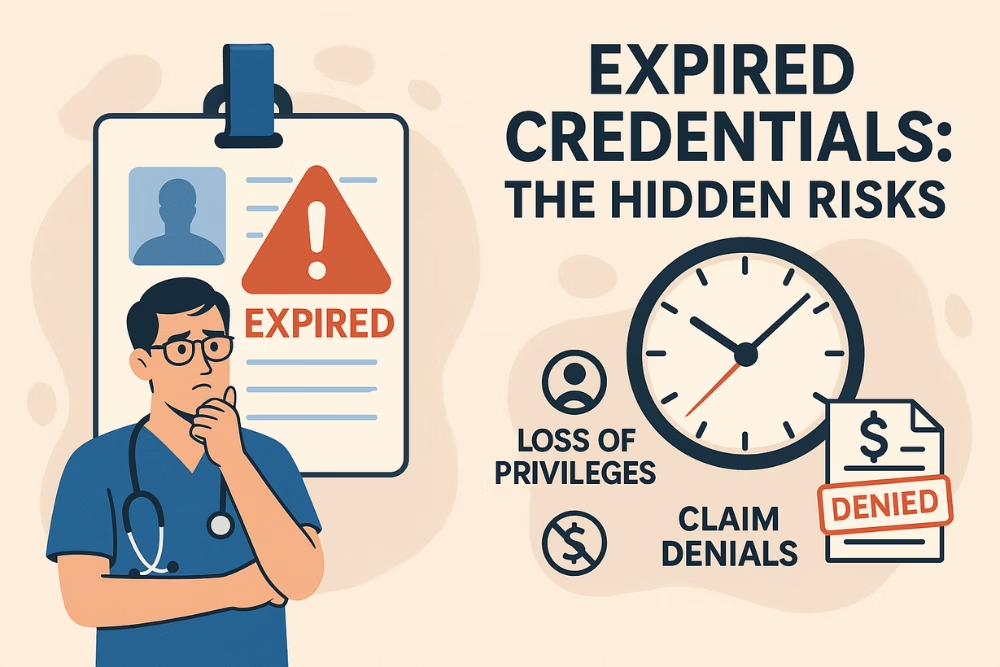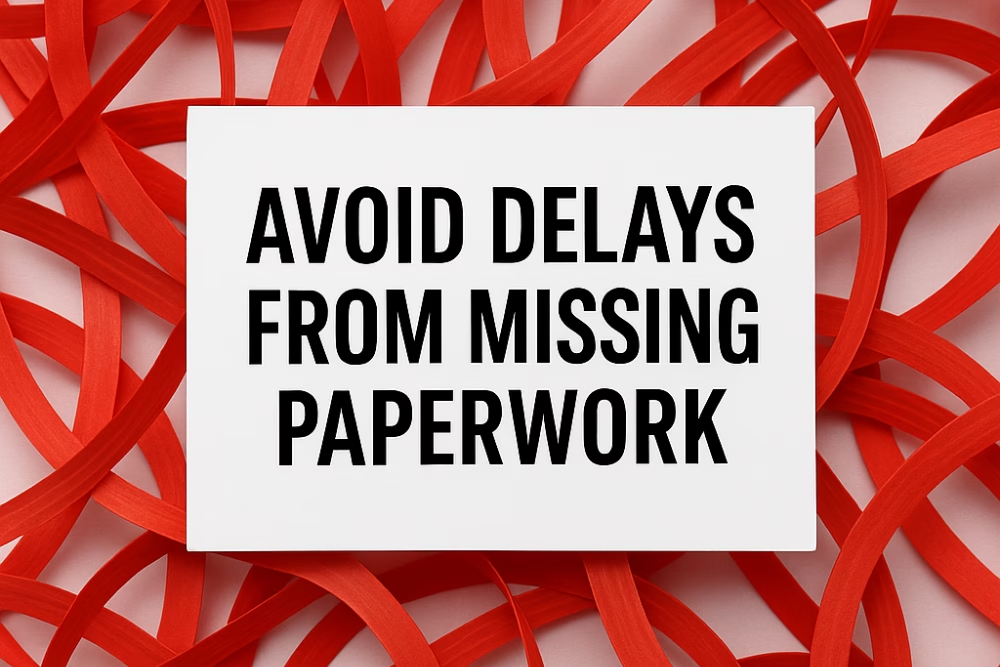As a practice manager, healthcare provider, or owner, you know the importance of running your operations seamlessly. While focusing on patient care and managing the daily grind, there’s a critical area that can often slip through the cracks – provider credentialing.
Credentialing is not just a formality; it’s a vital process that ensures healthcare providers are qualified and competent. Letting credentials expire can cause more than just paperwork headaches – it can lead to serious consequences, from patient care disruptions to significant financial losses.
The Risks of Expired Credentials
-
Loss of Hospital Privileges and Network Participation: If a provider’s credentials expire, they could lose their hospital privileges. This isn’t just an administrative issue – it’s a direct roadblock to delivering care. Providers need active privileges to admit and treat patients. Without current credentials, they might also be dropped from health insurance networks, reducing patient access and damaging your practice’s revenue.
-
Revenue Loss and Claim Denials: Billing teams can face a flurry of claim denials if a provider’s credentials expire. Health insurers deactivate providers with lapsed credentials, rendering services during that time non-reimbursable. This leads to lost revenue and increased administrative work to resolve these issues.
-
Fines, Sanctions, and Legal Risks: If a provider works with an expired DEA license or other certifications, it could result in hefty fines and regulatory scrutiny. These lapses could even open the door to lawsuits if patients are harmed. Working without valid credentials is a serious offense that can have far-reaching legal consequences.
-
Increased Legal Vulnerability: Even if the credentialing lapse is an honest mistake, it can lead to accusations of negligence. This puts your practice at risk of lawsuits. Demonstrating ongoing compliance with credentialing requirements is crucial for protecting your practice from legal exposure.
-
Insurance Contract Issues and Higher Premiums: Health insurers carefully review providers’ histories before entering into contracts. A history of credentialing lapses, legal penalties, or insurance gaps due to expired credentials can lead to contract rejection or much higher insurance premiums.
Case Study: Dr. Evans’ Credentialing Lapse
Dr. Evans, a respected cardiologist at a busy medical group, missed the renewal deadline for his state medical license. As a result, his hospital privileges were temporarily suspended. When a critical patient arrived in need of immediate care, Dr. Evans couldn’t admit the patient due to his inactive privileges, leading to a delay in treatment. The patient recovered, but the medical group faced both legal scrutiny and a severe impact on its cardiology services. Additionally, claims for the period when Dr. Evans’ credentials lapsed were denied, resulting in a loss of revenue and increased administrative strain.
The Solution: Stay Ahead of Credentialing Expirations
Don’t let expired credentials become a crisis for your practice. Proactive credentialing management is a key component of maintaining patient safety, regulatory compliance, and financial stability.
eClinicAssist offers comprehensive credentialing solutions that help you stay on top of your providers’ credentials and avoid costly disruptions to your practice.
Get in touch with eClinicAssist today to streamline your credentialing process and protect your practice from these costly risks.






